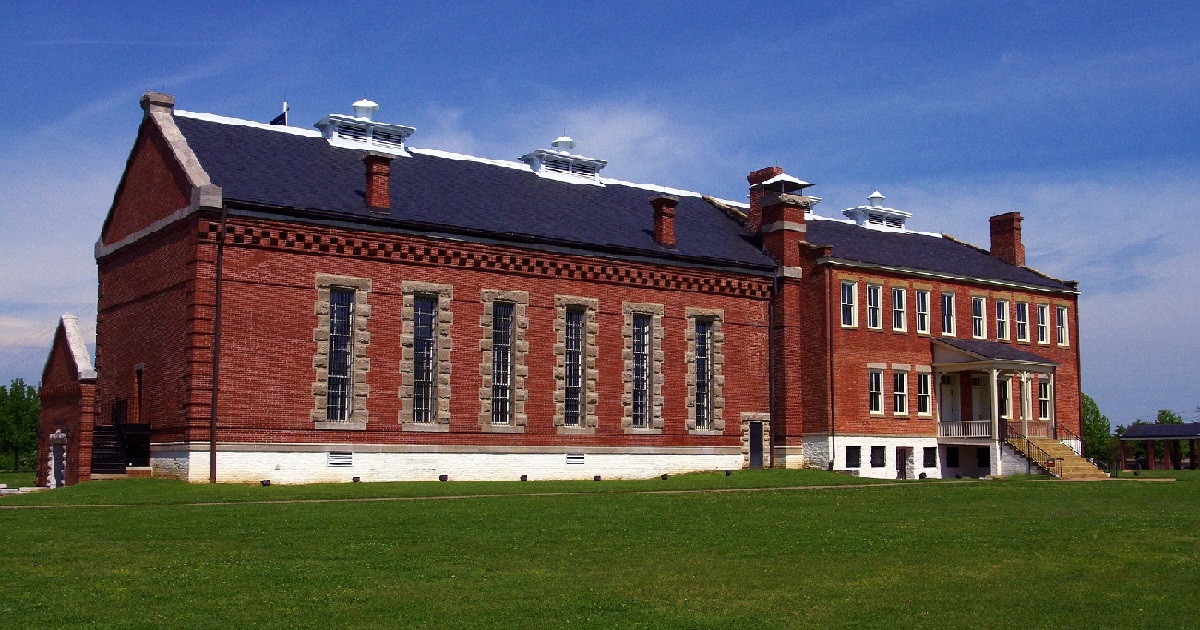The Natural State: Unveiling the Heart of Arkansas
Arkansas, sometimes known as “The Natural State,” is a lively state that is tucked away in the heart of the American South. From the majestic Ozark Mountains and fertile Mississippi Delta to bustling cities and hidden historical gems, It offers a diverse tapestry of experiences. This exploration delves into the essence of the State, uncovering its captivating landscapes, rich history, and unique cultural identity.

A Land Sculpted by Time: Arkansas’ Geological Tapestry
The geological history of Arkansas spans millions of years. The state’s varied landscapes are built upon sediment layers that were left behind by ancient waters and eventually crystallized into sandstone and limestone. Rolling hills, deep valleys, and glistening lakes are what remain of the once-tall peaks of the spectacular Ozark Mountains. Rich farmland and a distinctive environment can be found in the eastern Mississippi Delta, which was created by the massive Mississippi River’s millennium-long silt deposits. These varied geological elements molded the State’s history and development in addition to its beauty.
A Tapestry of People: From Ancient Dwellers to Modern Melting Pot
Indigenous cultures were thriving in Arkansas long before European invaders arrived. Prominent for their exquisite embroidery and expert equestrian skills, the Osage Nation made a lasting impression on the Ozarks. The Mississippi Delta provided rich soil for the Caddo people, who were well-known for their intricate ceremonial mounds.

Archaeological sites such as the Parkin Archeological State Park bear witness to the inventiveness and cultural diversity of these prehistoric people, preserving their legacy. French fur traders arrived in Europe during the 16th century, and then Spanish conquistadors and finally American immigrants. The state’s social fabric was permanently altered by the forcible migration of Africans held in slavery during the 18th and 19th centuries. Today, The State boasts a diverse population, with a growing Hispanic and Asian presence adding vibrancy to the cultural landscape.
A Haven for Outdoor Adventurers: Exploring Arkansas’ Natural Beauty
The varied topography of Arkansas attracts outdoor enthusiasts with an abundance of opportunities. Hikers and campers can find bliss in the Ozark Mountains. Paths such as the Ozark Highlands Trail meander through thick forests, offering views of expansive panoramas, natural bridges, and spectacular waterfalls. Kayak enthusiasts may explore the 135-mile Buffalo National River, a pristine wilderness full with fish and a variety of species. The Ouachita National Forest provides chances for mountain biking, equestrian riding, and animal viewing with its undulating slopes and thick pine trees.

Anglers and birdwatchers find refuge in the Mississippi Delta’s wide plains and copious waterways. During migratory seasons, ducks and geese swarm to the area, while bald eagles fly across the skies. Catching catfish, bass, and other freshwater species is one of the most popular recreational activities in the great Mississippi River and its tributaries. Whether you’re looking for adventure in the mountains, peace and quiet in the Delta, or just lounging by a lake, the State’s scenic landscape offers an opportunity to re-establish a connection with the natural world and make enduring memories.
Arkansas’s food culture
The cuisine of Arkansas includes a diverse mosaic of Southern staples like fried chicken and cornbread, regional sauces from BBQ traditions, and Delta influences that may be tasted in dishes like catfish and gumbo. Delta-style tamales, a tribute to African American and Cajun culinary traditions, are exclusive to the state. Apple orchards dotting the Ozarks yield fresh fruit for beloved apple pies. Fried catfish, a staple, is served alongside hush puppies. With its rice fields, the state boasts a prominent role in rice-based dishes. Embracing farm-to-table, the State celebrates local produce, meats, and dairy. Ethnically diverse communities add further depth to the state’s culinary offerings.

A Legacy of Music and Storytelling: From Blues to the Birthplace of Bill Clinton
The cultural identity of Arkansas is closely linked to storytelling and music. The state is credited with giving rise to the genre of American blues music, which originated from African Americans‘ experiences in the Delta. The State is where legendary blues performers like B.B. King and Johnny Cash perfected their art and made a lasting impression on American music. It is a state rich in country music history, and the state hosts numerous festivals and performances honoring this rich legacy.
Another essential component of Arkansas culture is storytelling. Folktales passed down through the ages encapsulate the essence of Southern hospitality, humor, and resiliency. It’s folklore provides an insight into the state’s history and customs, ranging from tales of legendary outlaws like Jesse James to ghost stories of haunted estates.

There are important historical sites in the State as well. The National Historic Landmark Little Rock Central High School was a crucial site of conflict during the Civil Rights Movement. Historical displays honoring the life and administration of native Arkansan Bill Clinton, the 42nd President of the United States, are housed at the Clinton Presidential Center in Little Rock.
A State on the Rise: Arkansas’ Modern Landscape and Future Outlook
Although Arkansas has a rich and complicated heritage, the state is changing right now. The state has concentrated on sectors including manufacturing, healthcare, and technology in an effort to diversify its economy beyond agriculture. Cities undergoing expansion and development, such as Fayetteville and Bentonville, are drawing in businesses and young professionals.

Another area of importance for the State is education. Academic institutions such as the University of Arkansas and Arkansas State University offer high-quality learning experiences and enhance the intellectual landscape of the state. Arkansas is still dedicated to encouraging sustainable practices and protecting its natural beauty. There are programs in place to encourage environmentally conscious travel and the preservation of the environment, and national parks and forests are safeguarded.
In Conclusion
The future is bright for Arkansas. It’s a desirable area to live, work, and raise a family because of its stunning natural surroundings, diverse cultural heritage, and expanding economy. The State can guarantee a successful and great future for all of its citizens by making investments in infrastructure, education, and inclusive economic development.
